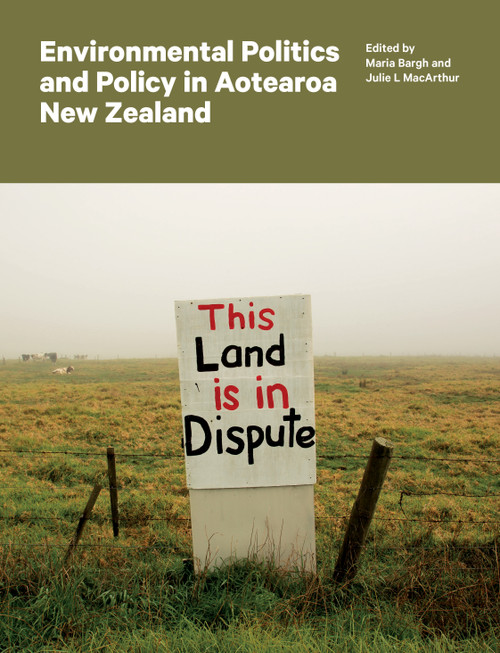
The Best Country to Give Birth? Midwifery, Homebirth and the Politics of Maternity in Aotearoa New Zealand, 1970–2022
Linda Bryder
The history of a momentous change in New Zealand’s maternity care – and its consequences for mothers and babies.
‘In 2012, following his investigation of the deaths of two babies in childbirth at Waikato Hospital, Hamilton coroner Gordon Matenga asked, ‘Does New Zealand have the safe, world-leading system the Government says we do, or are we losing babies because the balance has swung too far towards the idea that because childbirth is natural, then the philosophy of “non-intervention” is best?’ ‘Babies’ deaths reignite maternity row’, the New Zealand Herald announced.’
— from the introduction by Linda Bryder
Is New Zealand ‘the best country to give birth’? Historian of medicine Linda Bryder explores how New Zealand developed a unique approach to the role of midwives in childbirth in the 1990s, and analyses the consequences of that change for mothers and babies.
The Best Country to Give Birth? traces the genesis of the 1990 Nurses Amendment Act, which allowed midwives to practise alone in the community, back to the homebirth movement of the 1970s, and explores the aftermath of the Act including the withdrawal of GPs from maternity care. In investigating the consequences of the reforms, it uncovers repeated criticism of services – and what were deemed preventable deaths – from coroners, commissioners for health and disability, other health professionals including some midwives, academic researchers, and parents and families.
How and why does maternity care in Aotearoa differ from other countries? How has it shaped the equitable care of our mothers and babies? Why have critical reports had so little impact? This is a major historical account of an issue at the heart of our maternity care.
Author
Linda Bryder gained her MA (1st Class Hons) at the University of Auckland in 1980, and her DPhil in the history of science at the University of Oxford in 1985. Her doctoral thesis was published by Oxford University Press as Below the Magic Mountain: A Social History of Tuberculosis in Twentieth-Century Britain (1988). Linda held a research fellowship at The Queen’s College, Oxford, from 1984 to 1988, and was awarded a British Academy Post-Doctoral Fellowship in 1987.
Since returning to New Zealand in 1988, Linda has taught history at the University of Auckland and in 2008 was appointed professor. She has an extensive publication list in the social history of health and medicine, including over one hundred peer-reviewed journal articles and book chapters, and significant monographs in the history of women and children’s health, including A Voice for Mothers: The Plunket Society and Infant Welfare, 1907–2000 (2003), A History of the ‘Unfortunate Experiment’ at National Women’s Hospital (2009) and The Rise and Fall of National Women’s Hospital: A History (2014), all published by AUP.
In 2014 she was awarded an inaugural University of Auckland Research Excellence Award. From 2007 to 2023 she held an honorary chair at the London School of Hygiene & Tropical Medicine. She is a Fellow of the Royal Society of New Zealand Te Apārangi. A founding editor of the Oxford journal Social History of Medicine, Linda has served on the editorial board of several international medical history journals and co-edits the New Zealand Journal of History. She is currently President of the Australian and New Zealand Society of the History of Medicine.
Awards
Shortlisted — Ernest Scott Prize 2024
Endorsements
‘The Best Country to Give Birth?is an extremely good scholarly account of a critical period of change in New Zealand’s maternity history. It is thoroughly researched and highly readable. The work is comprehensive, including detailed descriptions of the key events that led to massive changes in the provision of maternity services in this country. As such it is impressive and likely to be a reference for researchers and interested readers alike. Its reception will also be explosive, or at least seen in some quarters as controversial, as it exposes for the first time the political influences at work behind the changes described – but it is factual and totally defendable.’
— Emeritus Professor Peter Stone, Obstetrics and Gynaecology, University of Auckland
‘This book examines the changes in midwifery in New Zealand since 1990, relating the unique circumstances that meant there was surprisingly little co-ordinated opposition to the reforms: a subdued obstetric profession, a no-fault medical compensation scheme, an early failure legally to define normal birth, and a rapid change in the nature of midwifery training. Unusual for a study of a profession, the book gives voice to its consumers, and, even more unusual, to their babies. The writing style is clear and accessible and the story is compelling – thiswill be a thought-provoking addition to midwifery literature.’
— Dr Alison Nuttall, History, University of Edinburgh
‘This is a careful, judicious, deeply researched demolition of a retrograde turn in modern attitudes to medicine and science. The story it tells is a scandal where a modern country with an excellent health system allowed itself to be taken over by a self-interested lobby group driven by ideology and science denial. This was an occupational turf war dressed up as liberation of women from male domination, except that mothers and babies died. Readers will detect a clear line from this rejection of biomedicine in childbirth to the anti-vax movement of the Covid pandemic. A quietly spoken book with a shocking story to tell, The Best Country to Give Birth? is a crucial step forward in the advancement of reproductive rights, women’s health and good medical practice.’
— Emeritus Professor Janet McCalman AC, Population and Global Health, University of Melbourne
‘With careful research and meticulous attention to detail, Bryder presents a readable narrative of the intricacies of maternity care in New Zealand over the past several decades. Every statement is well referenced, every argument well put. Bryder demonstrates how, over many years, politics frequently overrode the interests of mothers’ and babies’ health, often with tragic results for families, and shows how the current situation is still far from perfect. The answer to her question ‘is New Zealand the best place in the world to give birth?’ must still be a resounding ‘no’.’
— Professor Caroline de Costa, Obstetrics and Gynaecology, James Cook University
Reviews
'This is a brave intervention is a sensitive area of public policy by a historian who has engaged in deep research and reflection. The result is a meticulous policy history of formidable intellectual power.' — Ernest Scott Prize 2024, judges' comments
‘The timing is right for a hard and clear-eyed view of what has transpired. This book is essential reading for anyone who provided maternity care during this transition, and for anyone who cares about maternal and infant health.’ — William Ferguson, NZ Doctor




